The Speculative Poetry Scene
Guest Blog by Mike Allen (on the now-defunct Nebula Awards site) posted on October 05 2009
I was lucky enough to attend two award ceremonies this year related to speculative writing. First, the Nebula Awards ceremony in Los Angeles, where I got to see Harry Harrison receive his Grand Master Award, hear Janis Ian perform a filk version of one of her greatest hits, and lose the award in my category to a wonderful writer whom I’ve long admired.
Second, the Rhysling Award Poetry Reading in Boston, where I got to see young writer-to-watch Amal El-Mohtar learn she had won the award in the “short poem” category for her whimsical and musical poem about Damascus, “Song for an Ancient City.” It’s this second awards ceremony that I want to talk about at length here.
Science fiction poetry, fantastic poetry, speculative poetry, whatever you wish to call it, forms the core of a lively, thriving scene that coexists with genre fiction in many venues.
Let me show you some stills from the poetry scene.
I am the MC of the Rhysling Reading at ReaderCon, where the Science Fiction Poetry Association has announced the Rhysling winners for the past five years. This year, I talked Michael Bishop into reading his poem “For the Lady of a Physicist,” which won the “long poem” Rhysling Award in 1979. Michael delivered a charming preamble in which he explained that though his poem begins with a quote from Stephen Hawking, it’s modeled after Andrew Marvell’s “To His Coy Mistress” (the source of that oft-quoted phrase “world enough, and time”). A delighted murmur went through the 80-strong crowd. They knew the poem. The delighted reactions continued as they listened to the clever rhymes contained in his humorous poetic mash-up.
Not long after came Amal and Catherynne M. Valente, who kept the crowd rapt as they stood back to back and read alternating lines of their Rhysling nominated collaborative poem “Damascus Divides the Lovers by Zero, or the City is Never Finished.” A number of new talents and veterans took their turns, with Julia Rios, Caitlyn Paxson, Lila Garrott and others giving standout renditions of beautiful and complex poems, and Darrell Schweitzer amusing with a piece from Asimov’s Science Fiction that was short and off the wall. I’ve given away the ending: Rhysling Award Chairman Drew Morse passed on reading a poem of his own to announce the winners and spring the news on Amal that the members of the SFPA had voted her poem in the short category the winner by a landslide.
The long category went to “Search,” a nostalgic and funny look at the hunt for alien life by multiple Hugo and Nebula winner (and previous Rhysling winner) Geoffrey Landis. And I was pleased as punch that Michael approached me after the reading to tell me how delighted he was by the poetry he’d heard during that hour.
I couldn’t help but feel I’d been party to one of science fiction poetry’s proudest moments. Though that’s hardly been the only one of late. Roll back a year to August ‘08 when Drew, SFPA President Deborah P Kolodji and Treasurer Samantha Henderson went to Ray Bradbury’s birthday bash at Mystery and Imagination Bookstore in Glendale, CA, to present him with the Grand Master Award for achievement in speculative poetry. The meeting is recorded on video. Clearly delighted, Bradbury gives an impromptu speech about how he envied the talented poets he knew in his youth and the consternation he felt when Aldous Huxley informed him he was indeed a poet. Debbie tells Bradbury, “We think you’re a poet, too.” Grinning, Bradbury poses with the trophy, then exclaims, “To hell with the Academy Award!”
The past few years have seen a number of these memorable moments. The first Rhysling Award Reading at ReaderCon, where Joe Haldeman received a standing ovation for his reading of his rhyming double sestina, “Old Twentieth: a century full of years.” The 2008 Eaton Conference at University of California Riverside, in which the entirety of the SFPA’s archive of print publications going back to 1978 was made part of the J. Lloyd Eaton Collection of Science Fiction, Fantasy, Horror and Utopian Literature. Debbie’s talk on speculative haiku for the Haiku North America conference in the National Archives of Canada. Heck, even the room party held at ReaderCon by Amal and her co-editor Jessica Wick to launch the newest issue of their poetry zine Goblin Fruit was packed, with just about every personage of note at the con that night stopping in to chat.
The fact is, right now, speculative poetry is alive and well and interesting as hell. Though you might not realize it if you relied solely on the critical writings about sf, these explorations of science fiction, fantasy, horror and stranger themes in verse can be found in most of the same places short fiction is found, whether in print or online. Even occasionally in an anthology or two. Sometimes even a “best of the year” anthology.
It’s a form of writing kept alive by writers and editors who are just as interested in using poetry forms to examine the themes of speculative literature as they are in using prose. Its perpetuation is certainly a labor of love—not too different in its way from the dedication in absence of financial reward that goes into producing a number of the prominent semi-pro publications or even (by SFWA standards) professional short fiction venues. Like those venues, the field of sf poetry has been a proving ground for upcoming talents (the list of Rhysling Award winners yields such names through the years as Susan Palwick, Jeff VanderMeer, Theodora Goss, Tim Pratt, Catherynne M. Valente) and also a place where established veterans like Bishop or Landis or Joe Haldeman or Jane Yolen might turn up to make art that’s a little off the beaten track.
Most of the time, though not always, the poems also function as little narratives or mini-fictions (or in the case of the sf or fantasy haiku, mini-mini-fictions. In fact the folks who write such things have for years been producing the equivalent of the Twitterfic one now finds at Internet hotspots like Thaumatrope.)
There are currents and countercurrents to be found inside this scene. As a not-exactly neutral observer, I might break things down like this. Asimov’s, the monolithic source of the best and highest profile sf poetry through the ‘80s and ‘90s, has been eclipsed as the prime pillar of speculative poetry with the rise of the Web zines, which could shed the limits on length and theme that come with squeezing works into leftover space on the printed page. Strange Horizons, with its collection of co-editors with deep roots in the field, is the inheritor of sf poetry’s mainstream, the poems there following an overall sensibility directly descended from the poetic experimentations in the ‘70s of the likes of Ursula K. Le Guin, Thomas M. Disch and Brian Aldiss. A newer movement centers around the aforementioned upstart Goblin Fruit, with its focus on fantasy, myth and folktale inspired by Terri Windling and Midori Snyder’s late lamented Journal of the Mythic Arts. (Mind you, it would not be difficult to find individual exceptions to my sweeping generalizations at any of these markets, or, for that matter, poets who publish with frequency in all three places.)
If you’ve made it this far with me, you might be wondering when I’m going to tell you about what science fiction poetry is, or how you write it. Frankly, what it is, you’ve probably deduced by now, and if you want to know how to write it, your best bet is to go to some of these places I’ve mentioned already and start reading (or even to other places, like the decades-old zines Dreams & Nightmares, The Magazine of Speculative Poetry and Star*Line, my own zine Mythic Delirium, Astropoetica, Abyss & Apex, Ideomancer, Sybil’s Garage, Lady Churchill’s Rosebud Wristlet, Electric Velocipede … this list could get ludicrously long if I’m not careful.)
Many essays I’ve read about speculative poetry start with an attempt to explain just what this strange and wonderful chocolate-in-the-peanut-butter style of writing is, with sheepish asides about how little money is involved in writing it. To my mind, that approach wrestles with the obvious and misses out on the fun.
So I wanted to take a different tack, and just let you know that here in the universe of speculative poetry, we’re having a heck of a party, and we’d love for you to join us.
Posted in Poetry, Writing
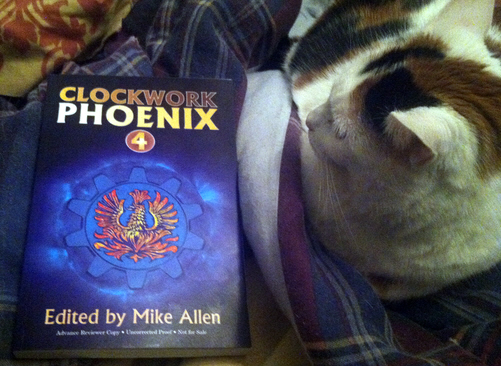
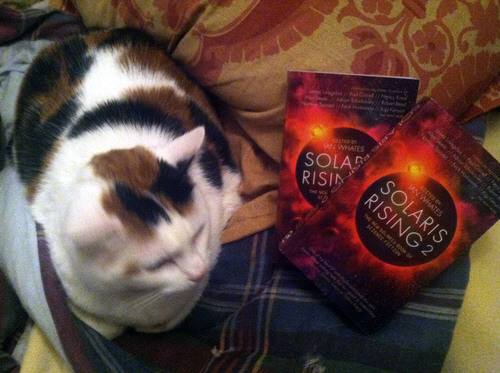

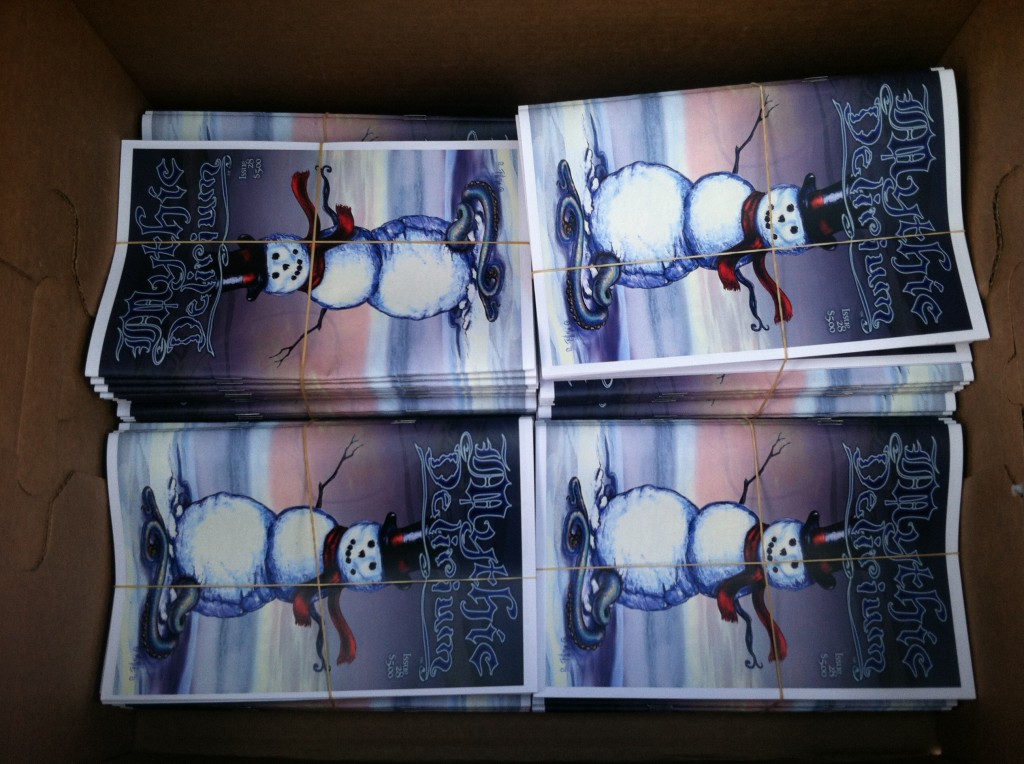



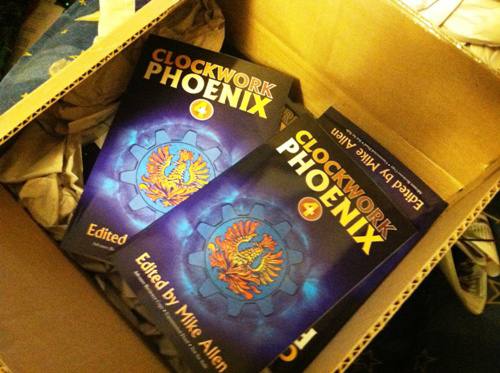
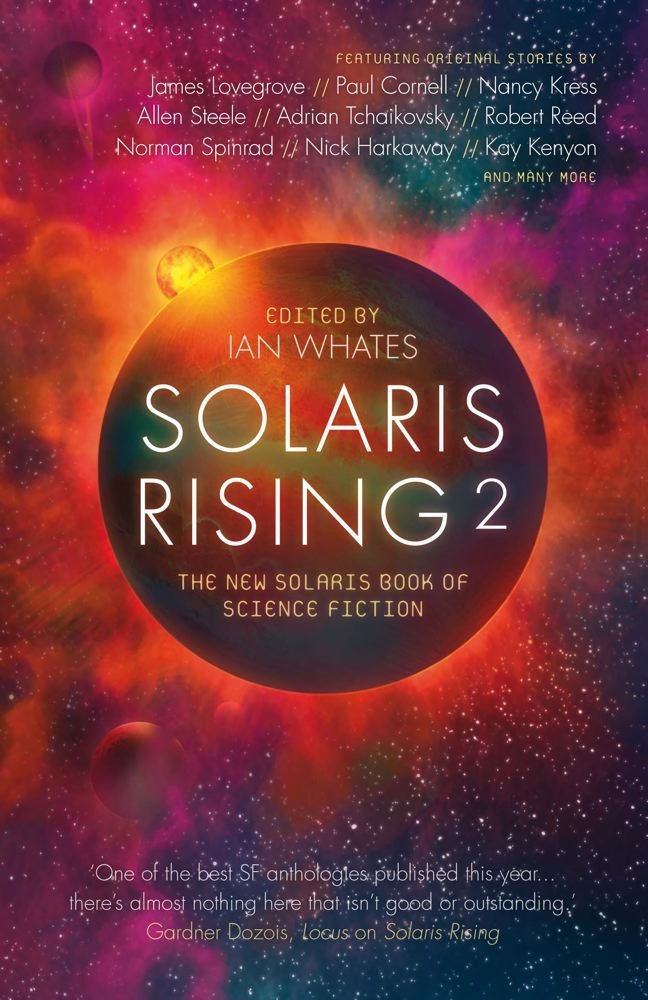
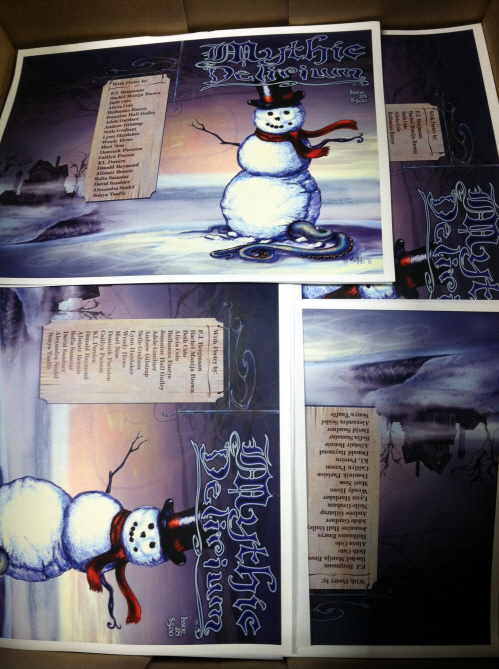
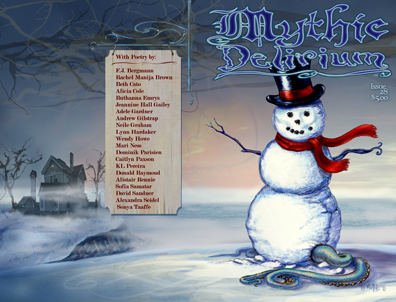
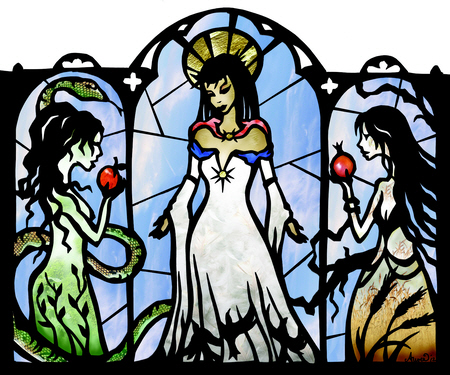

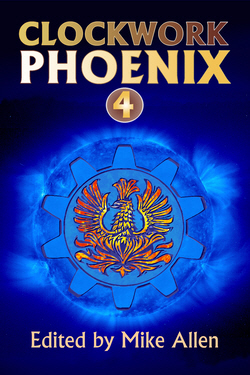
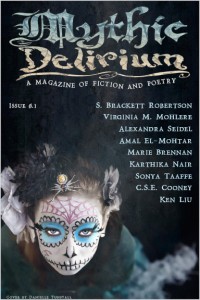 The new version of Mythic Delirium, which I’ve been personally referring to as “Mythic Delirium Zero,” will launch in July (to coincide with the release of Clockwork Phoenix 4). It will follow the models established by Clarkesworld, Lightspeed, Beneath Ceaseless Skies, et. al., though in a more modest form. It will be published as quarterly e-books that contain three stories and six poems, and also published online at the soon-to-be-renovated
The new version of Mythic Delirium, which I’ve been personally referring to as “Mythic Delirium Zero,” will launch in July (to coincide with the release of Clockwork Phoenix 4). It will follow the models established by Clarkesworld, Lightspeed, Beneath Ceaseless Skies, et. al., though in a more modest form. It will be published as quarterly e-books that contain three stories and six poems, and also published online at the soon-to-be-renovated 